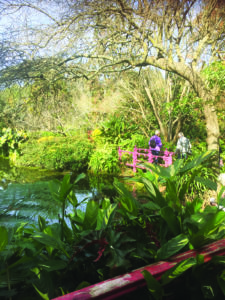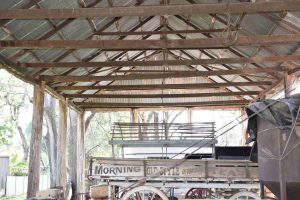The Galston District Garden Club are still postponing meetings due to the Covid19 virus. The venue we hold for our meetings can only have twenty seven people maintaining safe distancing so to overcome this dilemma at the end of July the members decided to hold a garden ramble and morning tea to catch up with each other. One of our members has the garden “Elegans” in Galston. Your may have visited Bill’s garden at one of the Open Garden Weekends the club holds each year to raise money for different charities. Unfortunately, we have cancelled the Open Garden Weekend for this year. All going well we will organize next year’s Open Weekend in October for 2021.

Camellias are one of the world’s favourite flowers. They have been cultivated here for 200 years, since the early days of European settlement and if you are looking for a hardy, winter flowering plant, Camellias are hard to beat. They give beautiful blooms right through autumn, winter and into spring. They make great foliage plant too, even without the flowers, with those dark green glossy leaves.
There are four main types of Camellias. There is Sasanqua, and the Japonica and then there are the Reticulata that has much bigger flowers and finally Sinensis which comes from China and that is the one that gives us our cup of tea, but you do not find many of them in home gardens.
Japonica is the most recognisable Camellia. It has a strong growth habit, large glossy dark green leaves and the flowers come from late autumn, right through to spring and they come in a range of sizes, colour and forms. As its name suggests, it comes from Japan and it was the earliest of the cultivated Camellias in Australia. Camellias pretty much grow anywhere in Australia. They do not mind a light frost and most of them do need shade, particularly during the midday summer heat and they need protection from hot, drying winds.
Sasanqua Camellia can be recognised by its smaller leaves and its rather straggly, leggy growth habit. It does have a beautifully delicate flower, but it drops its petals almost on a daily basis and that upsets some gardeners, but the carpet of petals on the ground that follows looks really stunning I reckon and because it has a huge number of buds, it has a long flowering season from late autumn right through to winter. It really is a beautiful plant. Some of these varieties actually stand full sun, although most of them like to grow in the shade and the full sun varieties make great hedging plants. An added bonus is that they stand regular pruning.
Camellias like a well-drained, slightly acid soil with a pH range of between 6 and 6.5 and adding regular compost helps to maintain that acidity level. If you want to get the very best out of your Camellia, give them a feed with an Azalea and Camellia fertiliser, about December and then just before flowering, a few handfuls of sulphate of potash.
The members of the Galston District Garden Club a looking forward to meeting. When it is safe to do so we will meet on the 2nd Wednesday of the month at the Galston Community Centre, 37 Arcadia Rd., Galson, 7.00pm.
For further information, visit our website:
www.galstongardenclub.com.au or email: [email protected]





